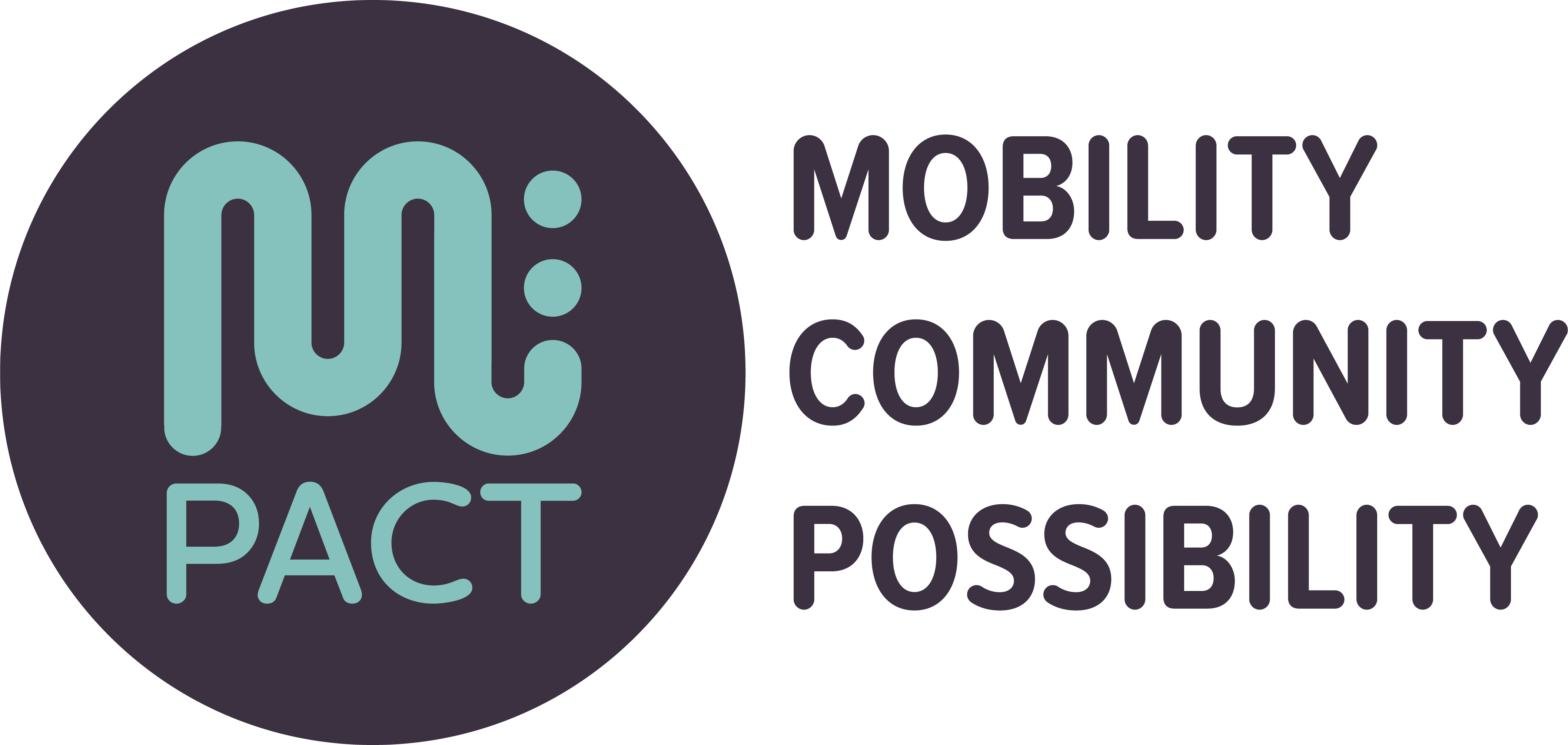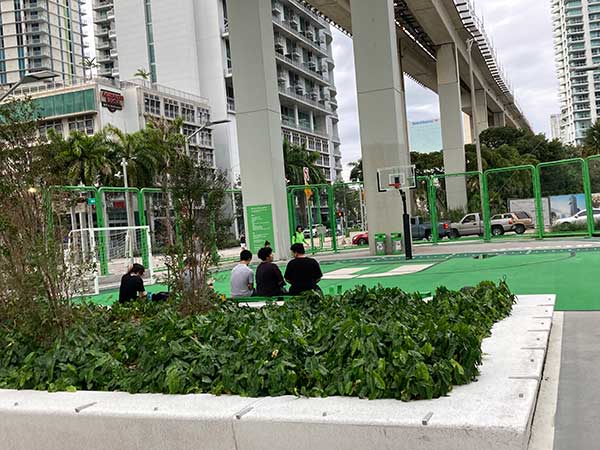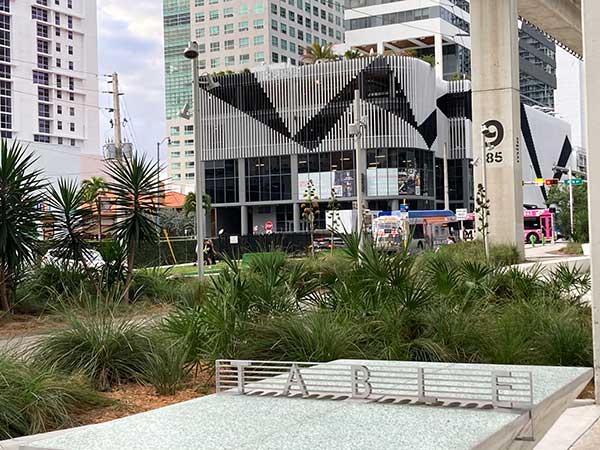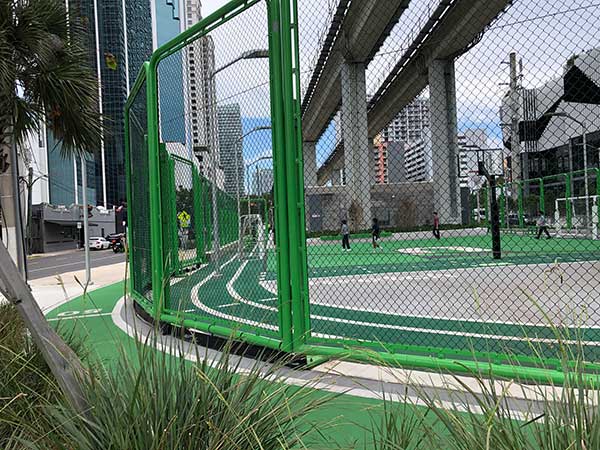Topics: 2022 Conference
Tags:
Originally published on railvolution.org. Rail~Volution is now Mpact: Mobility, Community, Possibility.
Rail~Volution’s staff and National Steering Committee met in early May to start crafting sessions for the 2022 transit and community development conference, coming October 30 to November 2 in Miami, Florida. (Thank you to everyone who submitted a proposal!) We heard from the Miami Local Host Committee and local leaders about changes underway in the region and saw some examples first hand.
Miami and the South Florida region are growing and diverse, with an international vibe. The region embraces innovation and technology (and visitors on vacation). City-builders there grapple with challenges of auto-oriented development, social inequality amidst a “hyper” real-estate market, and sea level rise due to climate change, as well as a contentious political environment. These are challenges familiar in many cities.
While it can feel like Miami is a test case or poster child for advancing transit-oriented communities against long odds, there is a lot to see and support. The conference will be in downtown Miami, where development is booming in proximity to transit.

Metrorail, The Underline and downtown Miami, the view from above
We met in offices near MiamiCentral station, where Brightline’s privately owned inter-city rail arrives, with close connections to Miami-Dade County’s Metrorail trains, Metromover autonomous circulator and bus routes as well as TriRail commuter trains. Passengers arriving at MiamiCentral can walk to nearby destinations, bring & ride their own bicycle, hop on a bike share bike, catch a bus, or patch into on-demand first-last mile transport.
The Brickell stop (on Metrorail and Metromover) offers another vibrant look at change underway in Miami. Descending from the Metrorail station brings you directly into the first phase of The Underline linear park. It offers a walking path and bike route as well as places to sit or gather or play.
The Underline below Brickell station is also a vibrant mobility hub, with buses and free trolleys arriving and departing throughout the day, plus bike share and scooter options. As a side note, the Brickell neighborhood, with residential and business towers as well as a lively night scene, all overlooking Biscayne Bay, rivals Miami Beach for people watching. Much of the new development at Brickell – and all along the Metrorail system – is market rate, but it signals a new embrace of transit and connected mobility options.
One of the biggest advances in mobility options in Miami-Dade County was the approval in late 2021 of the Better Bus Network, the first significant redesign since the launch of the Metrorail system in 1986. Developed in a unique collaboration between the county and local nonprofit, Transit Alliance Miami, the new system will increase routes with 15-minute service, greatly expanding access to high-frequency service for people living in poverty, seniors and households without cars. The roll out of the new system is delayed until early 2023 because of a lack of bus operators, according to the County. The County is moving forward on implementing bus shelter improvements in preparation for launch of the new system. For more about the Better Bus Network, listen to Episode 51 of the Rail~Volution podcast: A Grass Roots Network Redesign, with Carlos Cruz-Casas and Grace Perdomo (listen here).
The Underline, Miami
Miami-Dade Commissioner Eileen Higgins, who chairs the transportation, mobility and planning committee (see her 2021-2022 priorities here), kindly made time in her schedule to meet with us. Commissioner Higgins shared her enthusiasm for the BRT line coming to Miami’s South Corridor, which will expand access to transit in a county where 70% of residents are renters and over 50% are housing-cost burdened. She is a strong supporter of more affordable housing near transit for these reasons, calling transit “a housing affordability solution.” She also said Miami-Dade is in “the cross hairs of climate change” and spoke of the role of the new infrastructure law in helping Miami-Dade adapt.
We also discussed Florida laws targeting the LGBTQ+ community. Miami-Dade County is taking steps to combat these laws. The County formed a LGBTQ Advisory Board, adopted a Human Rights Ordinance protecting “against discrimination based on sexual orientation and gender identity and expression,” passed a resolution opposing “legislation that would limit classroom discussions on sexual orientation and gender identity” and declared October LGBTQ history month. The county commission is split in political affiliation, but all these votes have been unanimous. “The county is welcoming,” Higgins said. Rail~Volution will be putting in place specific ways to welcome and support the LGBTQ community during the conference, including highlighting LGBTQ-owned businesses and providing ways to support advocacy efforts.
Our May planning meeting in Miami gave a taste of what’s in store for the in-person conference there next October. At a time of incredible flux in travel patterns, amidst an almost universal crisis in affordable housing, and in the context of global warming, Rail~Volution 2022 will showcase the change-makers in South Florida working to shift modes and stem tides of climate change and inequality. It will also bring leaders and practitioners from across the US and Canada and beyond to share evolving tools for building more sustainable and equitable communities through transit, mobility and development policies and investment. We look forward to seeing you there. Registration opens June 10.
Updated May 23, 2022, to remove “light rail” from the sentence about Metrorail trains. The Metrorail system is heavy rail.





